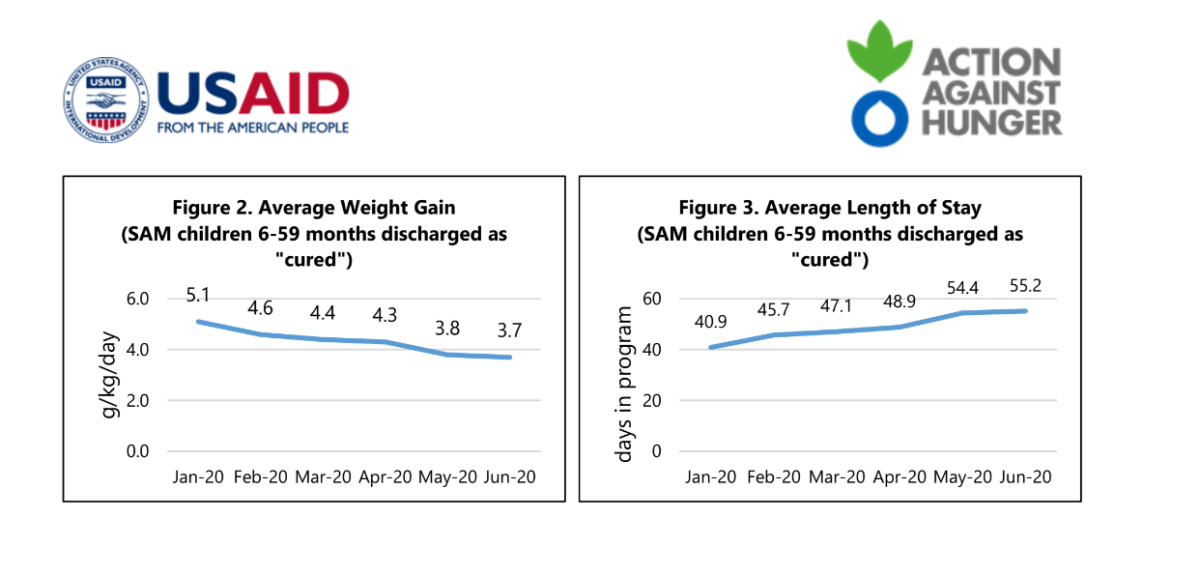COVID-19 & Nutrition Impact Series: Adaptations in Management of Child Wasting Amid Covid-19

As countries and communities continue to contain and manage the response to the COVID-19 pandemic, we are bringing together resources from the global nutrition community to highlight the nutrition and food security challenges, adaptations, and impacts due to COVID-19. If you are interested in contributing to the COVID-19 & Nutrition Impact Series please contact us here.
Action Against Hunger USA in Somalia implemented COVID-19-related adaptations to its CMAM programs in March and April 2020, following guidelines provided by the WHO, the Somalia Ministry of Health, and the Nutrition Cluster. These adaptations aimed to minimize the risk of COVID-19 transmission while continuing services for the management of child wasting. In addition to IPC measures, Action Against Hunger reduced the frequency of follow-up visits to minimize the risk of overcrowding at nutrition sites. OTP follow-up visits shifted from weekly to biweekly, and TSFP follow-up visits shifted from biweekly to monthly. Family MUAC was also scaled up to promote continued early identification of malnutrition cases. Reported challenges include procuring sufficient essential supplies, particularly in the context of international lockdowns and movement restrictions. Reduced frequency of follow-up visits may impact rate of weight gain and lengths of stay in the program due to less frequent health checks and the potential for families to share the larger rations received among other children in the household. Lessons learned include the need for close collaboration between government authorities, NGOs, and other stakeholders to maximize awareness and acceptance of these changes. Finally, Family MUAC was lauded as a useful approach to enhance community-based screening, support caregivers to take ownership of monitoring their children’s health, and identify and treat malnutrition cases early.”
Download Action Against Hunger USA’s CMAM adaptations Somalia case study here.
